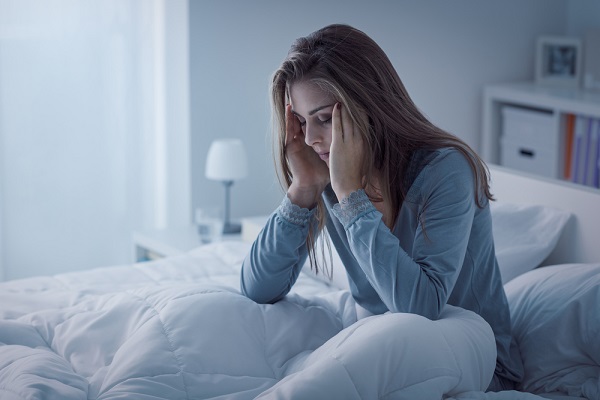5 Signs You May Need to See a Sleep Apnea Specialist

When getting decent sleep becomes challenging, it is time to consider seeing a sleep apnea specialist. Read on to learn about the signs of sleep apnea. High blood pressure, heart disease, stroke, diabetes, and certain headache syndromes can all be exacerbated by untreated apnea. However, many people are not aware that they are dealing with the condition. In this article, you will learn about the signs that indicate the need to see a sleep apnea specialist.
5 Signs you should see a sleep apnea specialist
Sleep apnea is a condition in which breathing stops and begins intermittently while sleeping. In obstructive sleep apnea, the muscles in the back of the throat collapse into the airway, causing an obstruction. This reduces or completely blocks airflow, sometimes lasting for up to 10 seconds. Here are several signs to visit a sleep apnea specialist:
1. Chronic snoring
When the muscles in the mouth and throat relax, the tissues vibrate with each breath, causing snoring. Almost every sleep apnea patient snores, but not everyone who snores has the condition. However, patients who snore heavily should talk to a sleep apnea specialist. They will check to see whether a sleep test is necessary.
2. Daytime sleepiness and fatigue
Patients with obstructive sleep apnea may wake up dozens, if not hundreds, of times during the night to breathe. The resulting sleep deprivation makes it hard to perform optimally during the day, and it may even lead to workplace errors, poor judgment, and accidents.
3. Morning headaches
People do not get enough oxygen if breathing stops periodically throughout the night. Carbon dioxide builds up in the brain, resulting in decreased blood flow to the brain and other vital organs. Headaches will occur as a result, and it can lead to more significant health issues. Gasping for breath repeatedly during the night also dries up the throat tissues, causing a sore throat and a headache in the morning.
4. Snorting and gasping during sleep
Obstructive sleep apnea is characterized by snoring, gasping, and shallow breathing. The person will wake up for a few seconds to gasp for air when their airway is partially or totally obstructed. A tired partner who notices the same pattern every night is often the first to suspect obstructive sleep apnea.
5. Fitting the at-risk group
Obstructive sleep apnea tends to affect some people than others. Men are more likely than women to develop apnea. However, women's risk increases after menopause. Obesity or being overweight can increase the risk of apnea. Also, those with a narrow airway, an oversized tongue, or a large neck might develop the issue due to their physical anatomy. Smoking, drinking alcohol, and being over 50 years old are all risk factors.
In conclusion
Speak to a sleep apnea specialist if you notice any of the above warning signals. They will almost certainly suggest a sleep study. Overnight sleep tests are performed in a specialist lab or, in some cases, in your own home. Conducting a sleep study is a method of determining your breathing patterns while you are sleeping. After confirming the diagnosis, the specialist will recommend treatment options to improve your sleep.
Request an appointment here: https://artisandentalbellevue.com or call Artisan Dental at (425) 454-2005 for an appointment in our Bellevue office.
Check out what others are saying about our dental services on Google: Sleep Apnea Specialist in Bellevue, WA.
Related Posts
Sleep apnea disrupts breathing during sleep and increases the risk of daytime fatigue, headaches, and cardiovascular strain. A general dentist evaluates airway health during routine visits and identifies red flags such as snoring, grinding, and jaw crowding. When appropriate, the dentist collaborates with a physician to confirm a diagnosis, then offers practical options, often an…
A snoring appliance can help reduce snoring and improve both sleep and breathing. Snoring is often caused by airway obstruction, which can disrupt sleep quality and affect overall health. Understanding how a snoring appliance works and its benefits can help determine if it is the right solution.Snoring happens when airflow is partially blocked during sleep,…
Sleep apnea treatments can significantly improve energy, focus, and general well-being. Dentists strive to help patients experience substantial relief and improved sleep through tailored treatment solutions. From comfortable oral appliances to collaborative care plans, these dental providers take a proactive approach to helping you get better rest.Sleep apnea is a common condition that disrupts breathing…
Continuous positive airway pressure (CPAP) machines have been one of the main ways of treating sleep apnea, but in recent decades, successful CPAP alternatives have emerged. In this review, we discuss the best CPAP alternatives to consider.CPAP machines are often reported as being awkward, ineffective, and hard to travel with. The good news is that…









